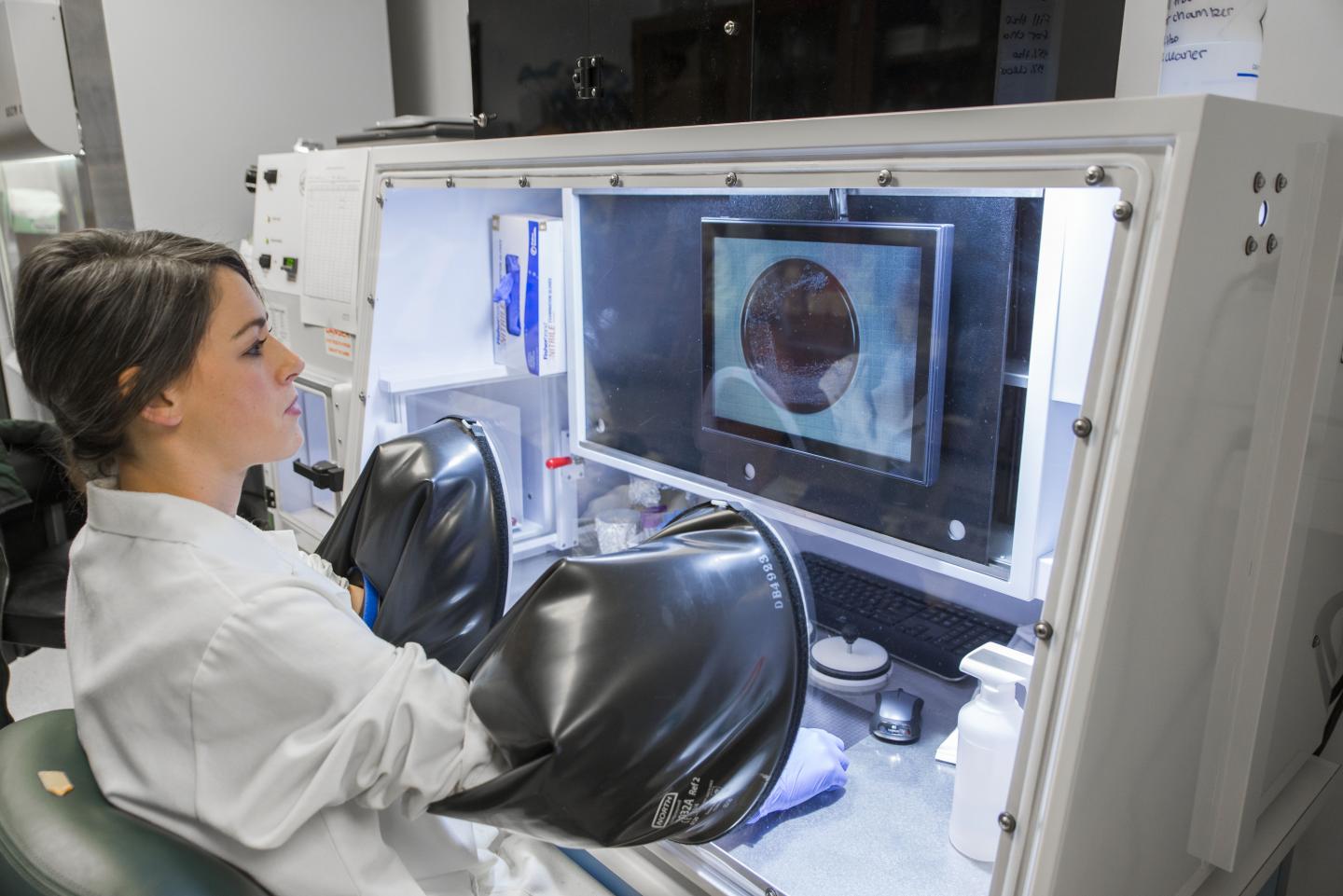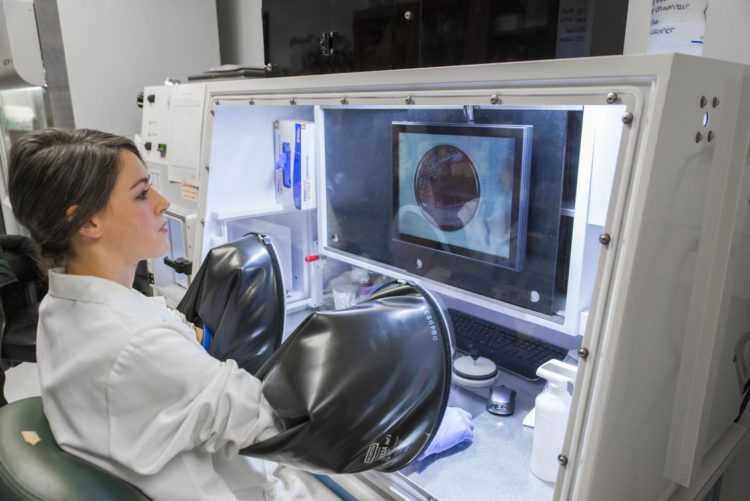
Credit: Marshall University
HUNTINGTON, W.Va. – Timothy Long, Ph.D., an associate professor at the Marshall University School of Pharmacy, along with Marshall University Joan C. Edwards School of Medicine colleagues Monica Valentovic, Ph.D., professor of biomedical sciences, and Hongwei Yu, Ph.D., professor of biomedical sciences, have received a three-year grant from the National Institutes of Health (NIH) to study the use of disulfiram in the treatment of antibiotic-resistant Staphylococcus aureus infections.
Most commonly known as “staph,” Staphylococcus bacteria are a frequent cause of skin, bone and joint infections. Methicillin-resistant Staphylococcus aureus, or MRSA, is typically a tougher strain of the infections to treat because it is resistant to some commonly-used antibiotics.
“Although increased prevention efforts in the United States have led to a recent decline in these infections, MRSA will remain a formidable threat to public health. We need to continue to develop new treatment strategies for infections that are multidrug-resistant,” Long said.
The study will use whole-genome sequencing, RNA-sequencing and high-performance liquid chromatography (HPLC) thiol metabolomics to decipher the mechanisms of disulfiram growth inhibition in Staphylococcus aureus. The findings of those studies will be confirmed by phenotypic screening and homologous recombination experiments. Likewise, the study will test disulfiram-vancomycin combination treatments in a vancomycin-intermediate resistant Staphylococcus aureus infection model.
The $434,180 grant, which came through the National Institute of Allergy and Infectious Diseases, will enable a new study of disulfiram (Antabuse™) as a potential repurposed drug to increase the effectiveness of vancomycin in resistant forms of Staphylococcus aureus infections. The study will analyze the use of disulfiram as an antibiotic adjuvant, or compound that enhances antibiotic activity, in the treatment of MRSA infections with reduced vancomycin susceptibility.
###
This award is a NIH Research Enhancement Award (R15) designed to support small-scale research projects that strengthen the research environment of the institution.
Media Contact
Michele McKnight
[email protected]
304-691-1713





